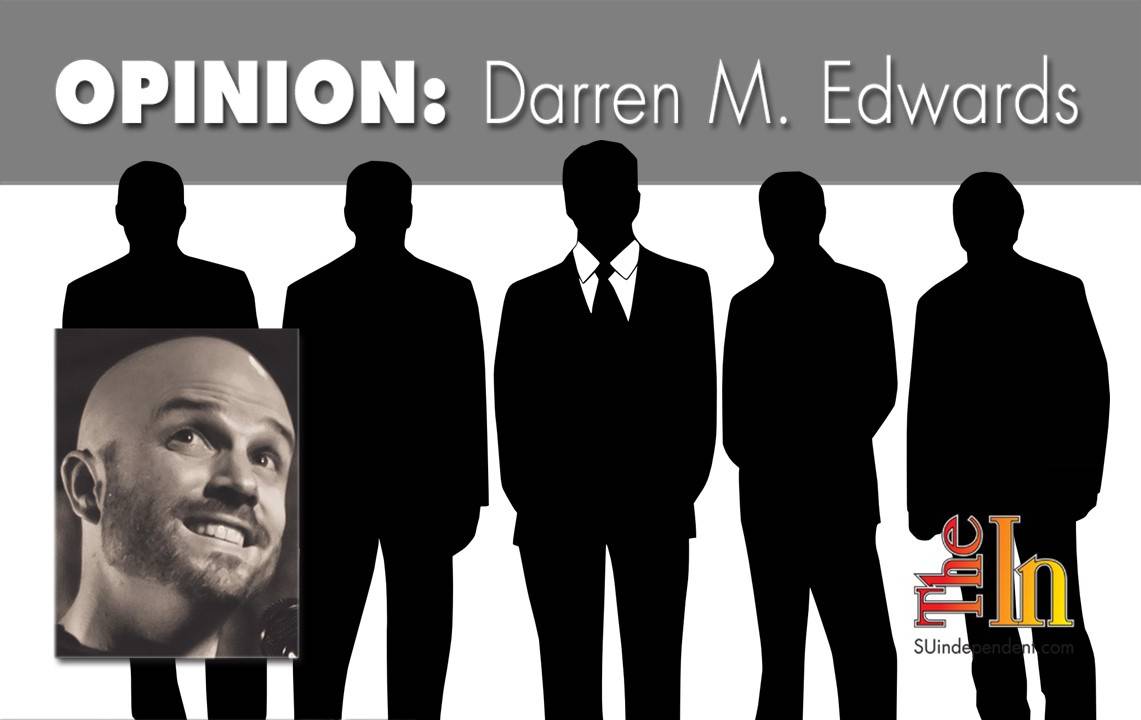 They always knew that I was behind them. I could tell by the way their bodies would tense and their pace would quicken. Sometimes it was midnight, I’d be walking home from the Merrill Cazier Library on Utah State University campus. Others, it could be midday. I hated it, knowing that my presence, my mere existence on the path behind them, made them uncomfortable. But this is what it was like every time I found myself walking down Old Main hill behind a girl by herself.
They always knew that I was behind them. I could tell by the way their bodies would tense and their pace would quicken. Sometimes it was midnight, I’d be walking home from the Merrill Cazier Library on Utah State University campus. Others, it could be midday. I hated it, knowing that my presence, my mere existence on the path behind them, made them uncomfortable. But this is what it was like every time I found myself walking down Old Main hill behind a girl by herself.
Meninists would point to these experiences as examples of the prejudices and struggles men have to face in today’s world. I mean, I had done nothing wrong. Why should I be thought of as a threat? Why should I have to carry the burden of this misplaced judgement? Well, that’s actually quite easy. It’s because both of those arguments are bullshit — flawed logic wrapped in a red herring. But, those who have openly declared themselves meninists aren’t open to rational argument. So, much like my experiences on Old Main hill weren’t really about me, this isn’t really about them.
The #YesAllMen hashtag started as a way for poor ignored men to point out all of the hardships they have to face just because they’re men. Do men face social issues? Of course, look at the research on male body image and both its relation to eating disorders and steroid use. Is pointing those things out a legitimate response to women talking about the things they have to face? Gods, no!
Today, literally as I sit writing this, a friend made a social post about what can best be described as a horrific experience she had recently with verbal sexual assault. If I were to discount the overwhelming number of experiences the women I know have survived involving physical or sexual assault, my heart would still be crushed under the weight of those that still are or will happen to them.
Like the #alllivesmatter hashtag, #notallmen and #yesallmen are about invalidating the experiences and silencing the voices of those speaking out for change.
A couple years ago, the internet erupted in a clash of #yesallwomen and #notallmen hashtags. What had started as a way for women to express their own experiences with sexual harassment and assault by both speaking out against those things and supporting each other men quickly turned into an imaginary attack against themselves. Somehow, this is still going on and has grown to include the #yesallmen trend.
From a purely, let’s call it static standpoint, these hashtags are correct because in fact #yesallwomen have and do face this shit every day, and at the same time #notallmen are guilty of perpetrating this shit or even supporting the rape culture that says it’s acceptable. And #yesallmen do have bad things happen to them, but that’s not the point. As many writers have pointed out before me, the #notallmen and #yesallmen hashtags aren’t about defending or standing up for men. For that to be true, men would first have to be under attack. We’re not. And men would have to struggle to have their voices heard. We don’t. Like the #alllivesmatter hashtag, #notallmen and #yesallmen are about invalidating the experiences and silencing the voices of those speaking out for change. They are about shifting the conversation back to talking about men, so we can continue ignoring what is happening to women.
As I said at the beginning of this article, I’m not trying to reach out to meninists here. I just don’t have the patience for that today. This is for the others. The men who don’t consider themselves meninists but use things like #notallmen and #yesallmen to insulate themselves from the discomfort of acknowledging the reality women have to face.
For you, here is the truth. Not all men are sexual predators, perverts, or sexists, but because, yes, all women have and do face sexual harassment and assault at the hands of so many men, maybe you can accept that women do have legitimate reasons to fear #yesallmen, that women must exercise caution when interacting with #yesallmen. Then, maybe, you can go a step further and embrace the idea that #yesallmen should be fighting to change an abusive and sexist culture, that #yesallmen should shut up sometimes and just listen to women about the issues they face, and that #yesallmen who don’t want to be part of the problem must work to become a part of the solution.
Articles Related to “What the #YesAllMen hashtag should mean”
The uncomfortable relationship between sex and violence in America
Why we need the concept of a white community now more than ever



